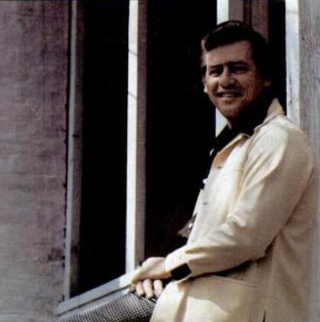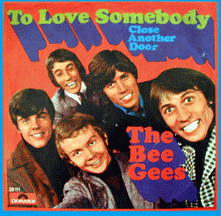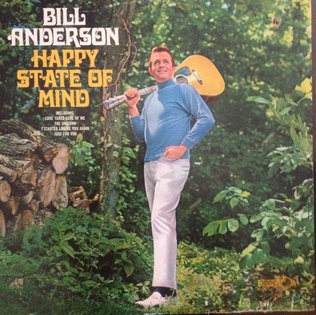Related Research Articles

"Me and Bobby McGee" is a song written by American singer-songwriter Kris Kristofferson and originally performed by Roger Miller. Kristofferson and Miller are distant cousins in the Chenoweth surname family tree. Fred Foster shares the writing credit, as Kristofferson wrote the song based on a suggestion from Foster. A posthumously released version by Janis Joplin topped the U.S. singles chart in 1971, making the song the second posthumously released No. 1 single in U.S. chart history after "(Sittin' On) The Dock of the Bay" by Otis Redding. Gordon Lightfoot released a version that reached number 1 on the Canadian country charts in 1970. Jerry Lee Lewis released a version that was number 1 on the country charts in December 1971/January 1972 as the "B" side of "Would You Take Another Chance On Me." Billboard ranked Joplin's version as the No. 11 song for 1971.

"Chantilly Lace" is a 1958 rock and roll song by The Big Bopper. It was produced by Jerry Kennedy, and reached No. 6 on the US Billboard Hot 100. Bruce Channel covered the song on his 1962 album, Hey! Baby. The song was also covered by Jerry Lee Lewis in 1972.

Calvin Grant Shofner, known professionally as Cal Smith, was an American country musician, most famous for his 1974 hits "Country Bumpkin" and "It's Time to Pay the Fiddler".

My Blue Ridge Mountain Boy is the fourth solo studio album by American singer-songwriter Dolly Parton. It was released on September 8, 1969, by RCA Victor. The album was produced by Bob Ferguson. It peaked at number six on the Billboard Top Country Albums chart, Parton's first solo top ten, and number 194 on the Billboard 200 chart. The album spawned three singles: "Daddy", "In the Ghetto", and the title track. "Daddy" was the most successful, peaking at number 40 on the Billboard Hot Country Songs chart.
"From a Jack to a King" is a country music song. Originally a crossover hit for artist Ned Miller, who also wrote "Dark Moon", "A Falling Star", and many other country songs. It has been covered extensively by country music artists.
"By the Time I Get to Phoenix" is a song written by Jimmy Webb. Originally recorded by Johnny Rivers in 1965, it was reinterpreted by American country music singer Glen Campbell on his album of the same name. Released on Capitol Records in 1967, Campbell's version topped RPM's Canada Country Tracks, reached number two on Billboard's Hot Country Singles chart, and won two awards at the 10th Annual Grammys. Broadcast Music, Inc. (BMI) named it the third most performed song from 1940 to 1990. The song was ranked number 20 on BMI's Top 100 Songs of the Century. Frank Sinatra called it "the greatest torch song ever written." It was No. 450 on Rolling Stone magazine's Top 500 Songs of All Time.
"That Lucky Old Sun (Just Rolls Around Heaven All Day)" is a 1949 popular song with music by Beasley Smith and words by Haven Gillespie.

"Turn On Your Love Light" is a rhythm and blues song recorded by Bobby Bland in 1961. It was an important R&B and pop chart hit for Bland and has become one of his most identifiable songs. A variety of artists have recorded it, including the Grateful Dead, who made it part of their concert repertoire.

"To Love Somebody" is a song written by Barry and Robin Gibb. Produced by Robert Stigwood, it was the second single released by the Bee Gees from their international debut album, Bee Gees 1st, in 1967. The single reached No. 17 in the United States and No. 41 in the United Kingdom. The song's B-side was "Close Another Door". The single was reissued in 1980 on RSO Records with "How Can You Mend a Broken Heart" as its flipside. The song ranked at number 94 on NME magazine's "100 Best Tracks of the Sixties". It was a minor hit in the UK and France. It reached the top 20 in the US. It reached the top 10 in Canada.
"(Now and Then There's) A Fool Such as I" is a popular song written by Bill Trader and published in 1952. Recorded as a single by Hank Snow it peaked at number four on the US country charts early in 1953.
"Detroit City" is a song written by Danny Dill and Mel Tillis, made famous by Billy Grammer, country music singer Bobby Bare and Tom Jones. Bare's version was released in 1963. The song — sometimes known as "I Wanna Go Home" — was Bare's first Top 10 hit on the Billboard Hot Country Singles chart that summer, and became a country music standard.

"Then You Can Tell Me Goodbye" is a song written by John D. Loudermilk. It was first released in 1962 by Don Cherry, as a country song and again as a doo-wop in 1967 by the group The Casinos on its album of the same name, and was a number 6 pop hit that year. The song has since been covered by Eddy Arnold, whose version was a number 1 country hit in 1968, and by Neal McCoy, whose version became a Top 5 country hit in 1996.
"Take These Chains from My Heart" is a song by Hank Williams. It was written by Fred Rose and Hy Heath and was recorded at Williams' final recording session on September 23, 1952, in Nashville. The song has been widely praised; Williams' biographer Colin Escott deems it "perhaps the best song [Rose] ever presented to Hank...It was one of the very few songs that sounded somewhat similar to a Hank Williams song." Williams is backed by Tommy Jackson (fiddle), Don Helms, Chet Atkins, Jack Shook, and Floyd "Lightnin'" Chance (bass). In the wake of Williams' death on New Year's Day, 1953, the song shot to No. 1, his final chart-topping hit for MGM Records. Like "Your Cheatin' Heart," the song's theme of despair, so vividly articulated by Williams' typically impassioned singing, reinforced the image of Hank as a tortured, mythic figure.
"I Don't Hurt Anymore" is a 1954 song by Hank Snow. It was written by Don Robertson and Jack Rollins.
"Reconsider Me" is a country/soul ballad written by Margaret Lewis and Mira Smith.
"She Even Woke Me Up to Say Goodbye" is a song written by Doug Gilmore and Mickey Newbury, and recorded by American country music artist Jerry Lee Lewis. Released in September 1969, it was the first single from his album She Even Woke Me Up to Say Goodbye. The song peaked at number 2 on the Billboard Hot Country Singles chart. It also reached number 1 on the RPM Country Tracks chart in Canada.
"Invitation to Your Party" is a single by American country music artist Jerry Lee Lewis. Released in July 1969, it was the first single from his album The Golden Cream of the Country. The song peaked at number 6 on the Billboard Hot Country Singles chart. It also reached number 1 on the RPM Country Tracks chart in Canada.

"Here We Go Again" is a country music standard written by Don Lanier and Red Steagall that first became notable as a rhythm and blues single by Ray Charles from his 1967 album Ray Charles Invites You to Listen. It was produced by Joe Adams for ABC Records/Tangerine Records. To date, this version of the song has been the biggest commercial success, spending twelve consecutive weeks on the US Billboard Hot 100 chart, peaking at number 15.

Happy State of Mind is a studio album by American country singer-songwriter Bill Anderson. It was released in September 1968 on Decca Records and was produced by Owen Bradley. Anderson's tenth studio recording, it was also his second studio album released in 1968. Among the songs included on the release was the title track, which became a major hit in both the United States and Canada.

My Life/But You Know I Love You is a studio album by American country singer-songwriter Bill Anderson. It was released in June 1969 on Decca Records and was produced by Owen Bradley. It was Anderson's eleventh studio album to be issued during his musical career. The album's title was derived from its two singles of the same names. Both singles became major hits on the Billboard country chart.
References
- 1 2 Whitburn, Joel (2008). Hot Country Songs 1944 to 2008. Record Research, Inc. p. 385. ISBN 978-0-89820-177-2.
- ↑ Mack, Bill. "Bill Mack's "Hot Mike"".
- ↑ Monson, Valerie (April 3, 2001). "Myra English: 'Champagne Lady' of isles dies at 68". The Maui News. Retrieved May 24, 2012.
- ↑ Jerry Lee Lewis, Live at the International Retrieved June 18, 2012.
- ↑ Billboard Hot Country Singles & Tracks
- ↑ "Cal Smith Chart History (Hot Country Songs)". Billboard.
- ↑ "Billboard". 1968-10-05.
- ↑ "Top RPM Country Tracks: Issue 1352." RPM . Library and Archives Canada. October 20, 1990. Retrieved August 23, 2013.
- ↑ "George Strait Chart History (Hot Country Songs)". Billboard.
- ↑ "RPM Top 100 Country Tracks of 1990". RPM . December 22, 1990. Retrieved August 23, 2013.
- ↑ "Best of 1990: Country Songs". Billboard . Prometheus Global Media. 1990. Retrieved August 23, 2013.